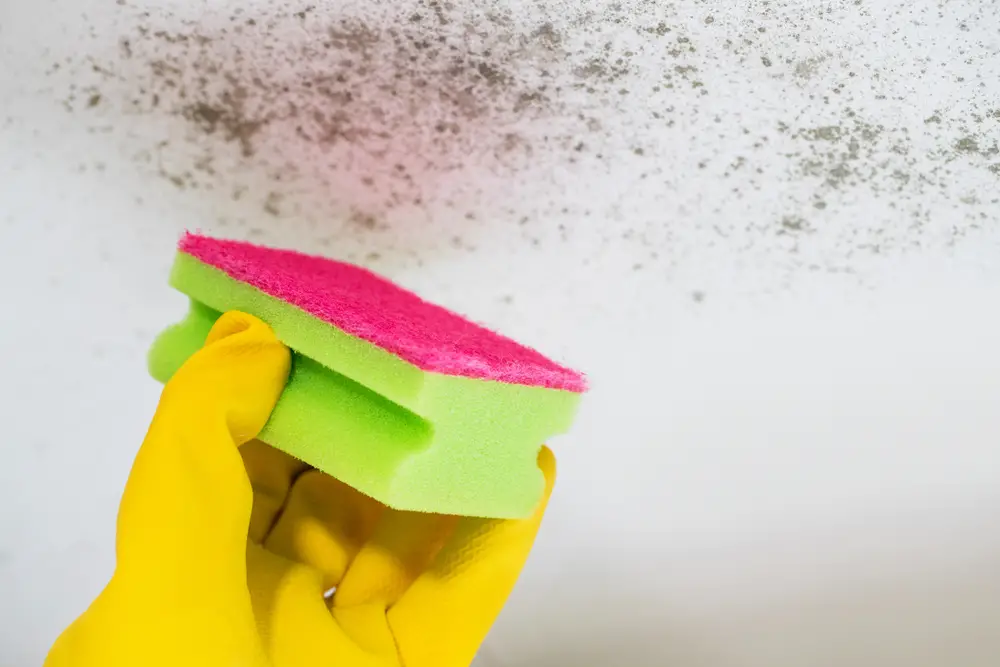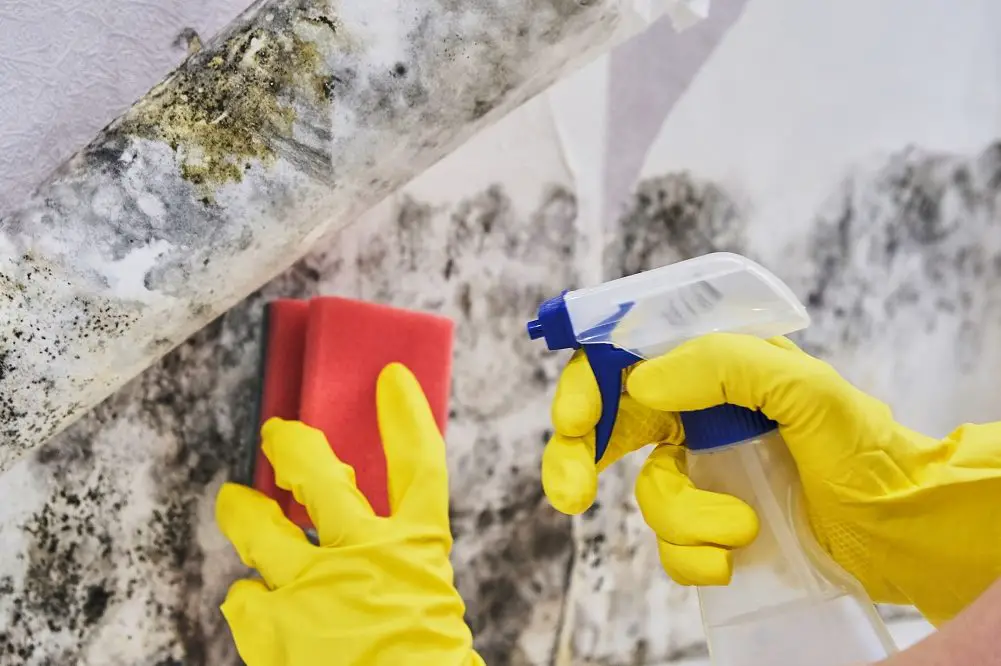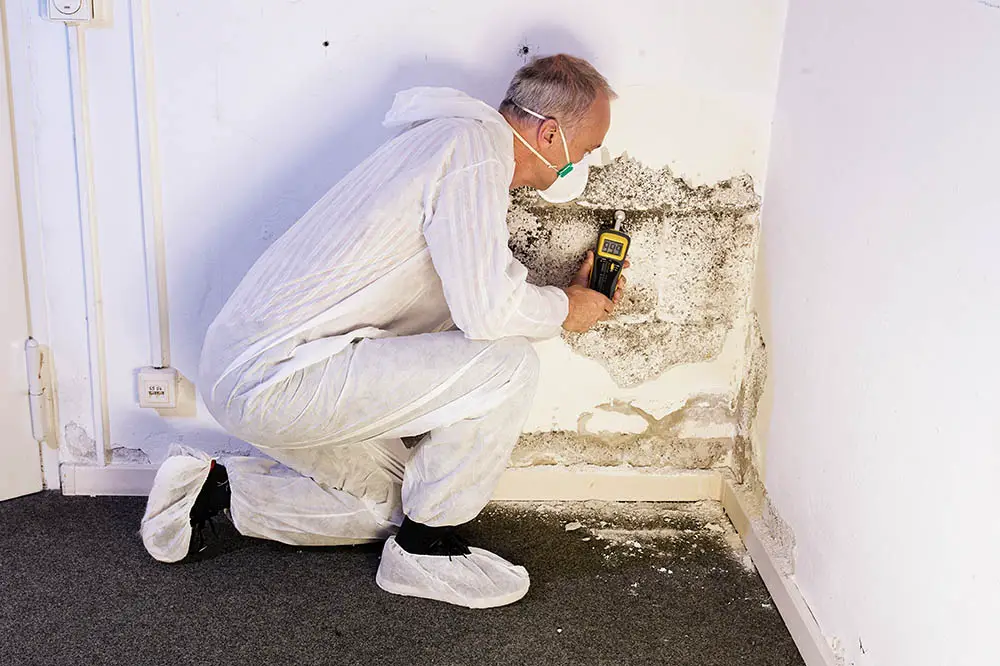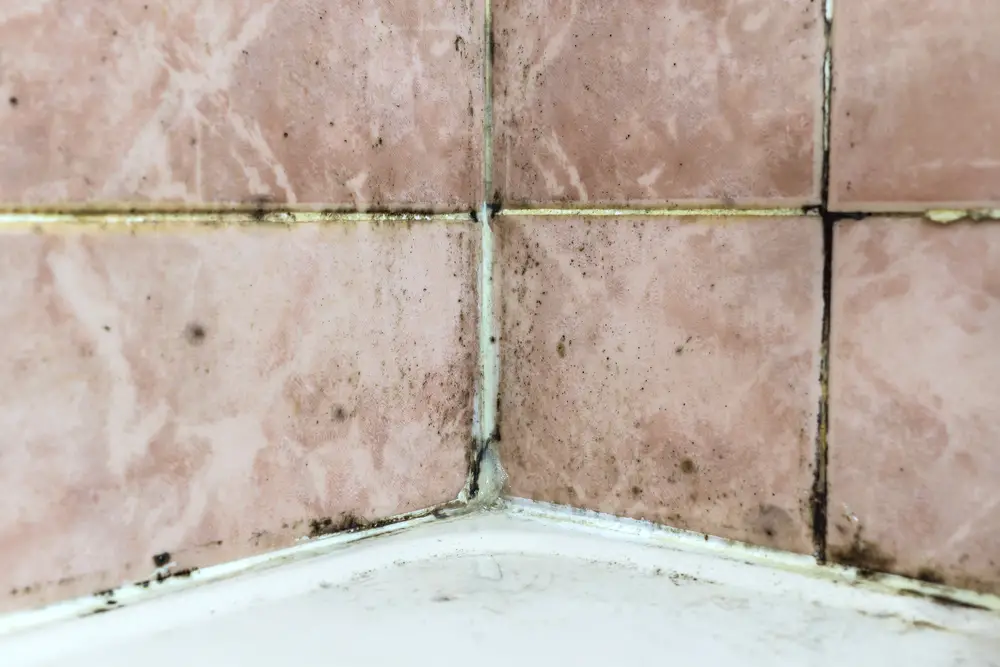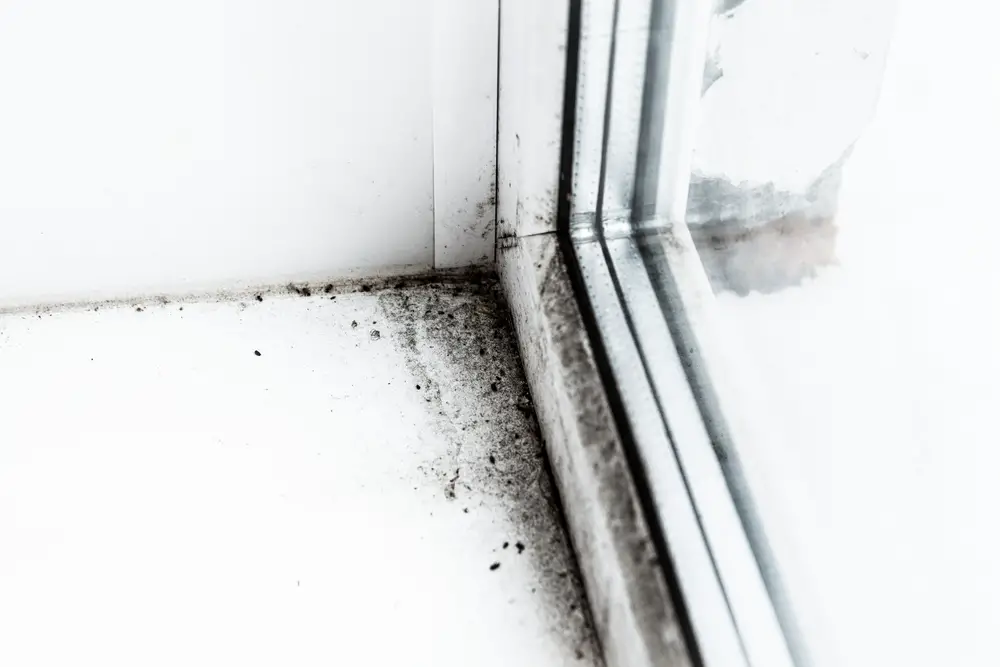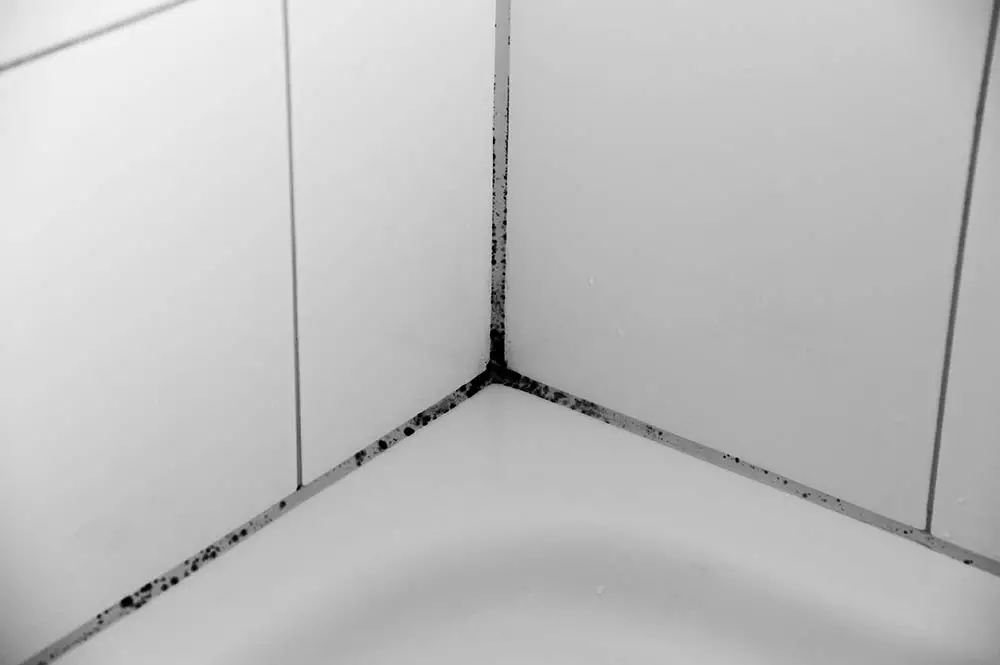No, dehumidifiers alone cannot eliminate existing mold in your home. However, they play a crucial role in preventing mold growth by reducing humidity levels. Mold spores require moisture to grow, so maintaining low humidity can help prevent mold from spreading or forming in the first place.
Mold spores remain dormant in the air until they find moisture from the air or a water source to help them grow. If the humidity in a room increases, mold can begin to grow on walls, floors, or furniture. While a dehumidifier can prevent the spread of new mold spores, it won’t kill the existing mold in your home.
To effectively eliminate mold, you must use appropriate treatment methods, such as commercial mold removers or professional mold remediation services. After treating the existing mold, continue using a dehumidifier to maintain low moisture levels and prevent future mold growth.
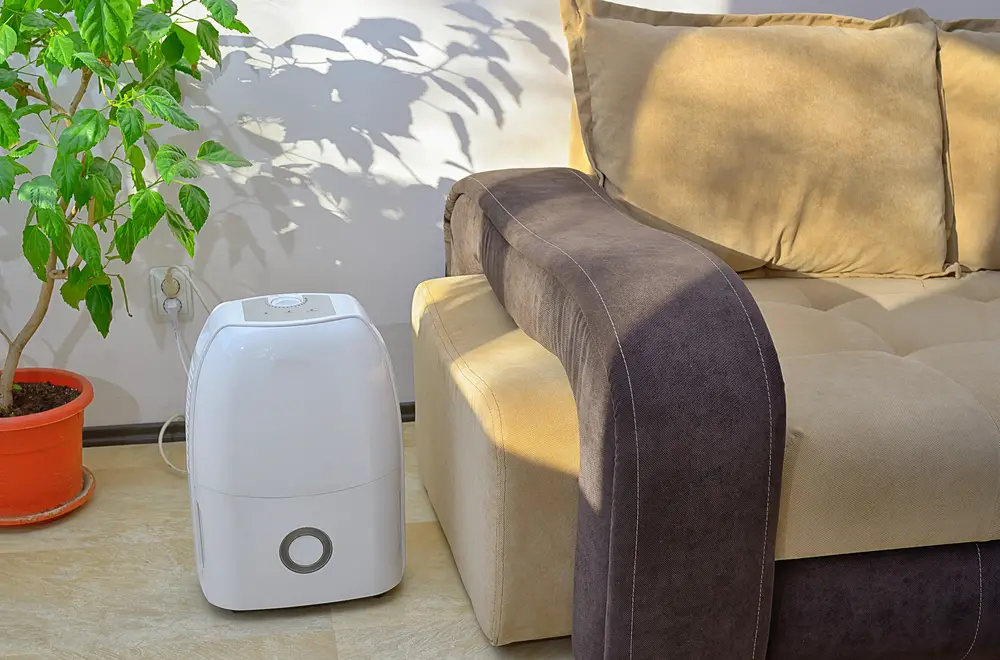
Will a Dehumidifier Help with Mold in the Bathroom?
Yes, a dehumidifier can help prevent mold growth in your bathroom, but it should not be used as a sole solution to eliminate existing mold. Bathrooms are particularly prone to high humidity due to showers and baths, creating an ideal environment for mold.
If your bathroom lacks an efficient exhaust fan, or if you don’t have windows to ventilate the space, a dehumidifier can help reduce moisture levels during and after showering. Ensure that your exhaust fan vents outside your home, not into your attic, as this can increase humidity levels in the attic and create a breeding ground for mold.
If your bathroom has windows, open them slightly during and for 15 minutes after showering to help air circulate and reduce moisture. Additionally, keep the exhaust fan running if you have one to decrease humidity levels more quickly. Leaving the bathroom door open slightly during and after showering can also boost air circulation and reduce moisture.
If you already have a mold issue in your bathroom, you need to address it immediately using homemade remedies or by calling a professional mold remediation service. Use a dehumidifier alongside these treatments to prevent the spread of mold spores.
What’s better for mold: Air Purifiers or Dehumidifiers?
A dehumidifier is the best choice for preventing mold growth, as it reduces excess moisture in the air, which decreases mold’s ability to grow and spread. However, an air purifier can also be useful as it cleans the air of mold spores and other bacteria. Ideally, using both an air purifier and a dehumidifier can ensure healthy air conditions in your home.
Air purifiers are less obtrusive and can be placed discreetly on side tables, kitchen counters, or behind doors while still working effectively. Dehumidifiers, especially the more efficient ones, are less discreet and should be placed near the center of the room to draw moisture from all areas.
What dehumidifier should I get?
The dehumidifier you need depends on the moisture levels in your home and the size of the room where you plan to use it. Factors such as living in a humid climate, the number of people using the room, and the presence of moisture-generating appliances like a washer/dryer will influence the size of the dehumidifier you need.
Even if your moisture problem is not severe, getting a larger dehumidifier with a bigger capacity can be beneficial as it can still work effectively at a lower setting. A larger unit will ensure that even unexpected increases in humidity are managed efficiently.

Should I turn my dehumidifier off in the winter?
If you live in an area that experiences significant decreases in temperature and humidity levels during winter, you should reduce the use of your dehumidifier when humidity levels drop below 50%. In some cases, you may even turn it off.
Using a dehumidifier in low humidity conditions can cause damage to the unit. The moisture absorbed from the indoor air can freeze when it condenses on the coils inside the dehumidifier, potentially damaging the machine. To avoid this, monitor indoor humidity levels and adjust the use of your dehumidifier accordingly during the winter months.
By understanding the proper use and limitations of dehumidifiers, you can effectively manage humidity levels in your home and prevent mold growth, ensuring a healthier living environment.

